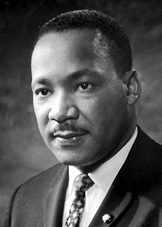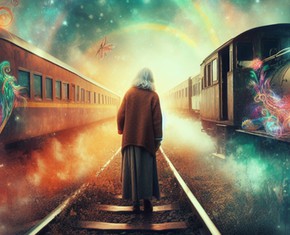The views expressed in our content reflect individual perspectives and do not represent the authoritative views of the Baha'i Faith.

When we talk about identity, we often hear people talk about someone’s racial identity or ethnic identity. But, how often do we hear about someone’s spiritual identity? What does having a “spiritual identity” really mean, anyway? And why is it important?
I consider spiritual identity as a much bigger universe than any individual’s affiliations with a particular religious persuasion — be it Baha’i, Christian, Muslim, Jewish, etc… In many ways, I think of a person’s spiritual identity as the foundation for all other identities. Namely, individuals have a physical, intellectual, and spiritual reality. The material world largely serves as the means or conduit that refines and develops our spiritual reality for continued progress in “all the worlds of God.”
Through this spiritual reality, the Baha’i writings say:
One discovers spiritual revelations. … It is an eternal reality, an indestructible reality, a reality belonging to the divine, supernatural kingdom; a reality whereby the world is illumined, a reality which grants unto man eternal life. – Abdu’l-Baha, Foundations of World Unity, p. 51.
Whether you believe in an afterlife or not, I think that understanding this spiritual part of ourselves helps us make moral choices that foster the well-being of both ourselves and others during this journey of life. The Baha’i teachings say that understanding this spiritual reality helps humanity achieve universal peace – because relating to each other at these levels forms the strongest and most long-lasting bonds:
Until all nations and peoples become united by the bonds of the Holy Spirit in this real fraternity, until national and international prejudices are effaced in the reality of this spiritual brotherhood, true progress, prosperity and lasting happiness will not be attained by man. – Abdu’l-Baha, Foundations of World Unity, p. 85.
As a peacebuilder at heart, I spend a fair bit of time wondering how working with these spiritual identities (instead of the much narrower ones that we often use to define ourselves) can help the world transition to a more tranquil time. Many religious traditions, including the Baha’i Faith, emphasize the importance of a spiritual identity and the human soul’s relationship to a divine spirit. But, how do we draw on this untapped energy, depth of knowing, and moral imagination to advance peace? A contemporary paper from the Institute for Studies in Global Prosperity ponders this theme:
Men and women of insight, often inspired by the sacred scriptures of the world, have throughout history sought to broaden human consciousness by drawing attention to that which is most essential about human nature: the inner reality with which every human being is born, the reflection of the Divine in each of us, that which we all share in common, that which is whole within us, as opposed to the fragmented labels with which society tags us in the course of our life.

Spiritual and faith leaders — from Martin Luther King in the United States to Desmond Tutu in South Africa to Mother Theresa in India to the Dalai Lama in Tibet — have raised vital voices for peace and justice. And, as always, many more unsung heroes do this important work everywhere.
When so many people around the world seek what is spiritual and gives their lives meaning, even when it does not involve following a traditional religious path or structure, such an identity would seem to have an important part to play in renewal. Politicians and intellectuals, especially in the West, often rush to disassociate themselves from anything with a religious or faith-inspired link. Ironically, they may be overlooking one of the greatest means for transforming our societies.
I’m a pragmatic person by nature, and I like to figure out how to translate abstract concepts into practical programs people can implement. In this sense, we all need to figure out how we can support the spiritual impulse in community development or social action or peacebuilding work. That’s not easy, and I admit I’m a bit impatient generally. But perhaps our first task, before everything else, involves raising the consciousness of others to the importance of a spiritual identity.
(Note: This entry was adapted from a published paper by the author entitled “New Perspectives on Identity and Conflict,” in Living in Peace: Insights from World Religions, Chanju Mun and Ronald Green, eds., Blue Pine Books, Honolulu, HI, 2012.)
















Comments
Sign in or create an account
Continue with Googleor